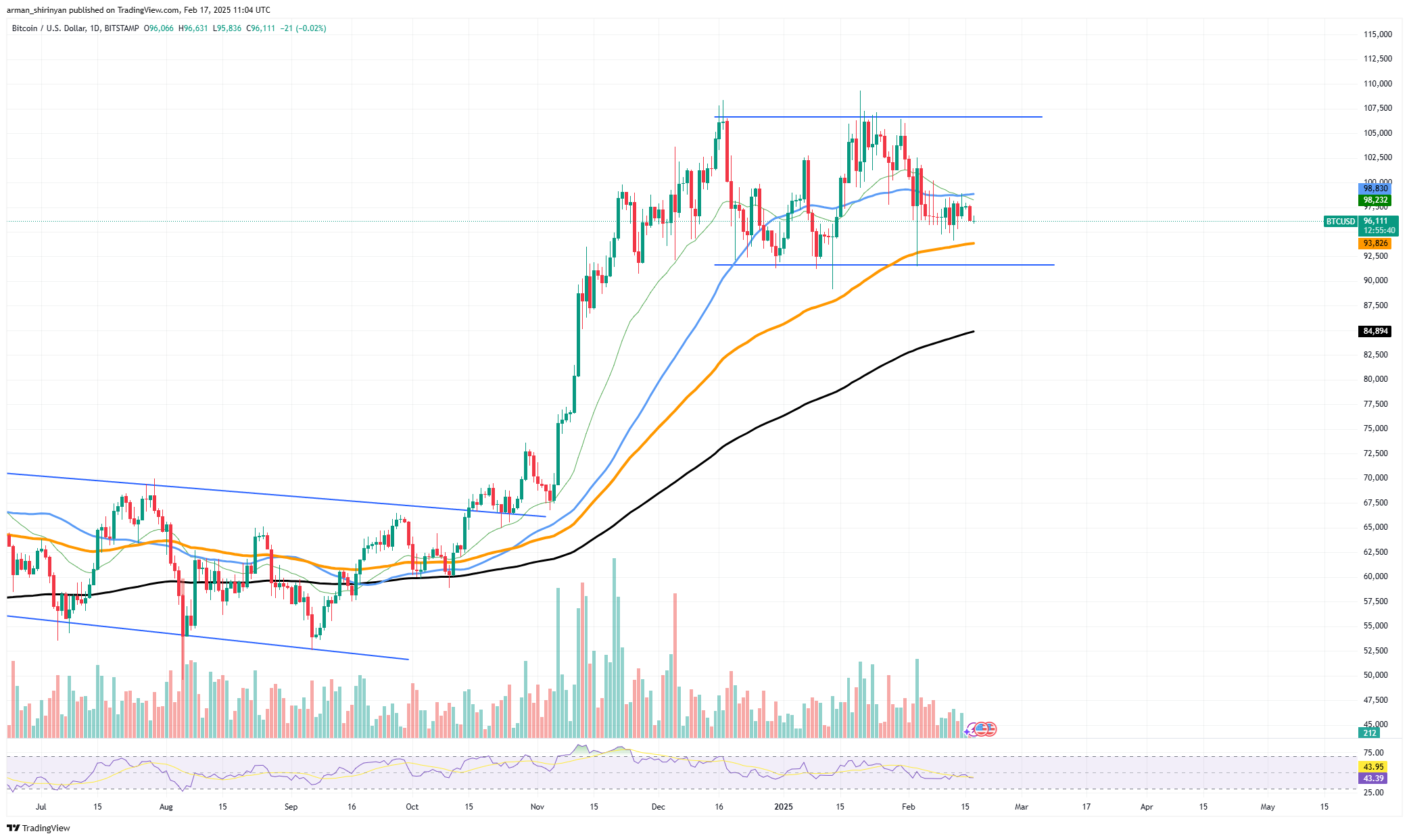
Disclaimer: The opinions expressed by our writers are their own and do not represent the views of U.Today. The financial and market information provided on U.Today is intended for informational purposes only. U.Today is not liable for any financial losses incurred while trading cryptocurrencies. Conduct your own research by contacting financial experts before making any investment decisions. We believe that all content is accurate as of the date of publication, but certain offers mentioned may no longer be available.
Since altcoins like Ethereum are having trouble gaining traction, Bitcoin's market dominance has increased to almost 60% - a four-year high. This indicator shows how resilient Bitcoin has remained on a market where interest in other digital assets is waning. BTC continues to be the focus of investor attention even though the overall market is moving sideways and the volatility of the cryptocurrency space is also decreasing.
Bitcoin's dominance is approaching its highest level since 2021, which indicates a change in market sentiment as investors choose BTC over riskier altcoins. Ethereum and other alternative assets have not been able to draw in large amounts of capital due to their poor performance.

Implied volatility keeps dropping as Bitcoin remains comfortably in the middle of its trading range. Seven-day realized volatility has decreased to 36% according to recent data, which reflects the market's current stagnation. The lack of significant crypto-specific catalysts has made this trend predictable, resulting in more macro-driven price movement. Bitcoin and stocks continue to have a strong correlation, indicating that the direction of BTC will continue to be influenced by larger financial market trends.
Despite a number of macroeconomic uncertainties, including inflation and possible changes in regulations, Bitcoin has not been particularly affected. After January's month-end expiration, open interest in the cryptocurrency options market has not significantly increased. This suggests that rather than responding to speculative rhetoric, traders are mainly remaining passive and waiting for tangible developments.
With traders choosing short-term strategies like range-bound trading and near-term volatility selling, the market currently seems unsure about whether to wager on volatility. This pattern is similar to previous market conditions seen in the middle of 2023, when Bitcoin was having trouble breaking out of its wide trading range.

 Vladislav Sopov
Vladislav Sopov Dan Burgin
Dan Burgin